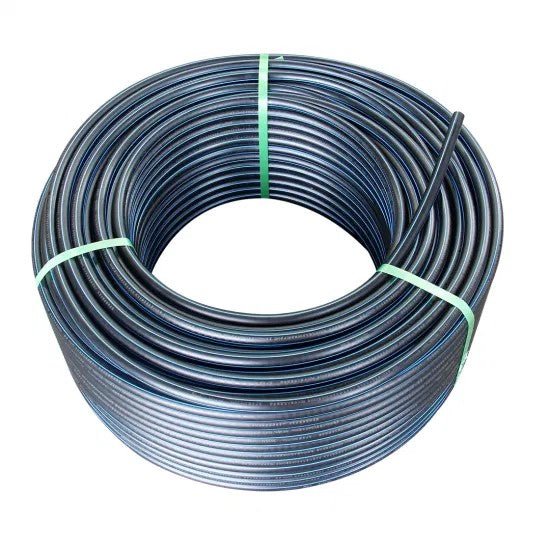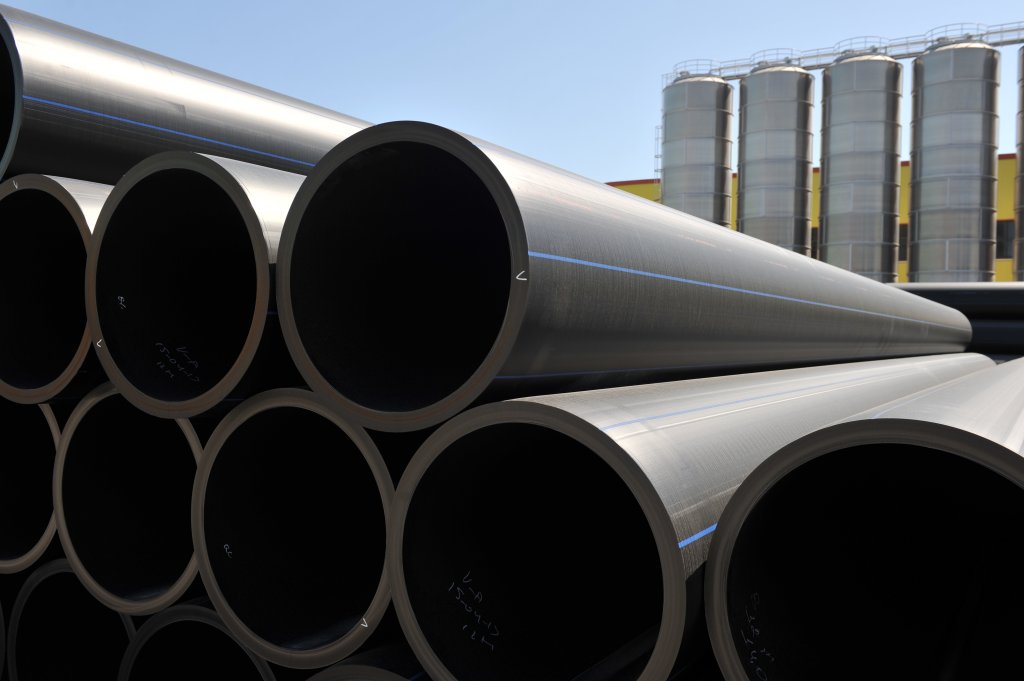How American Plastics HDPE Pipe Manufacturing Maintains High Standards
Wiki Article
Recognizing the Key Advantages of HDPE Pipeline for Water and Wastewater Management
Using HDPE pipeline in water and wastewater management provides countless benefits that warrant consideration. Its exceptional sturdiness and long lifespan make it a preferred choice for lots of projects. Furthermore, the product's resistance to rust and chemical damages improves its integrity in numerous atmospheres. Nonetheless, the benefits expand beyond simply longevity and resistance. Discovering its cost-effectiveness and ecological effect discloses much more engaging factors for its prevalent adoption in modern infrastructureExtraordinary Resilience and Longevity

HDPE pipeline stands out for its remarkable longevity and durability, making it a recommended choice in water management systems. Created from high-density polyethylene, these pipes can withstand considerable pressure and tension, guaranteeing trusted performance with time. Their robust nature permits them to endure extreme environmental problems, consisting of temperature level changes and dirt activities, which can create other products to fail.
The life-span of HDPE pipelines commonly exceeds 50 years, supplying an affordable service for districts and sectors alike. Additionally, the material's lightweight buildings simplify installment, lowering labor expenses and timeframes. This durability reduces the requirement for regular repairs or substitutes, additionally improving its financial appeal.
In water monitoring applications, the dependability of HDPE pipes suggests less disruptions and enhanced service continuity, making them indispensable to lasting infrastructure advancement. The mix of longevity and long life strengthens HDPE's role as a foundation in reliable water management solutions.

Resistance to Rust and Chemical Damages
While numerous products succumb to corrosion and chemical damage over time, HDPE pipes show remarkable resistance, making them excellent for numerous water management applications. This strength stems from the molecular framework of high-density polyethylene, which is naturally non-reactive and does not rust like steels or degrade from exposure to severe chemicals. As a result, HDPE is highly effective in atmospheres with aggressive compounds, such as wastewater systems that may contain acids, bases, and natural solvents.
Furthermore, HDPE pipelines can hold up against ecological elements such as soil acidity and saline problems, better boosting their suitability for varied applications (American Plastics HDPE Pipe Manufacturing). Their capacity to maintain architectural stability with time lowers the risk of leakages and failures, which is vital in ensuring the safety and security and dependability of water distribution and wastewater administration systems. Consequently, the resistance to rust and chemical damage substantially adds to the general efficiency and long life of HDPE piping solutions
Cost-Effectiveness and Economic Advantages
When taking into consideration the economic implications of water monitoring systems, the cost-effectiveness of HDPE pipelines becomes apparent. These pipelines use reduced setup and upkeep prices compared to conventional products like steel or concrete. Their lightweight nature streamlines transport and installation, leading to reduced labor expenditures. Additionally, HDPE pipes exhibit a lengthy life-span, usually exceeding half a century, which converts to less replacements and lasting savings.In addition, the resistance of HDPE to deterioration and chemical damage reduces the demand for expensive repair services and replacements. The pipelines also support efficient water flow, decreasing energy prices related to pumping systems. By minimizing leakages and water loss, HDPE pipes add to considerable economic benefits for municipalities and sectors alike. Overall, the initial financial investment in HDPE piping can generate significant economic returns over the life-span of the water monitoring system, making it a sensible selection for sustainable facilities growth.
Ecological Sustainability and Decreased Impact

Convenience and Adaptability in Installation
As a result of their unique properties, HDPE pipelines provide remarkable flexibility and adaptability in installation, making them ideal for a vast array of applications. Their light-weight nature permits for less complicated handling and transport, lowering labor expenses and setup time. HDPE pipes can be bent and formed to fit numerous surfaces and task needs, which is specifically valuable in challenging environments.Furthermore, their resistance to corrosion and chemical damages enables installation in varied setups without the demand for specialized protective finishes. The capacity to fuse joints produces a continual, leak-free system, improving the general honesty and integrity of the setup. HDPE's versatility additionally accommodates ground movement, decreasing the risk of damages in areas vulnerable to changing dirt. Generally, these attributes make HDPE pipes not only versatile yet additionally a recommended option for water and wastewater management systems.
Frequently Asked Inquiries
How Does HDPE Pipeline Compare to PVC in Water Monitoring Applications?
HDPE pipe offers remarkable flexibility, resistance to corrosion, and longevity contrasted to PVC. Its lighter weight promotes much easier installment, while its lengthy life expectancy lowers replacement prices, making HDPE a recommended option in water administration applications.What Is the Lifespan of HDPE Piping Under Regular Problems?
Under typical problems, HDPE pipelines can have a lifespan ranging from 50 to 100 years. Their resilience and resistance to deterioration add to pipe saddle their long-term performance in different applications, making them a reliable choice for facilities.Are HDPE Pipes Recyclable After Their Life Span?
Yes, HDPE pipelines are recyclable after their life span. hdpe pipe fittings Midland TX. They can be refined and repurposed right into brand-new items, greatly decreasing environmental effect and advertising sustainability within the sector, making them an environmentally friendly option for piping remediesWhat Is the Setup Refine for HDPE Piping?
The installation procedure for HDPE pipes includes site preparation, trenching, pipe blend or mechanical joining, backfilling, and pressure screening. Correct strategies ensure a resilient and effective system for moving water and wastewater properly.Can HDPE Pipes Be Used for Both Potable and Non-Potable Water Solutions?
Yes, HDPE pipelines can be used for both potable and non-potable water systems. Their adaptability, sturdiness, and resistance to corrosion make them suitable for different applications, Website making sure safe and efficient transport of water in various contexts.Report this wiki page